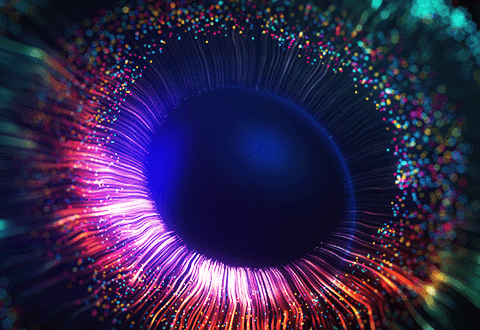Do Eye Problems Cause Headaches?

Because chronic migraines can be so debilitating, it makes sense that people who suffer from them are eager to figure out the root causes in an effort to make them stop. While headaches can be the product of any number of factors, including stress, medication, hormones and caffeine consumption, eye problems can absolutely be a critical component in causing migraines. The optometrists at Access Eye review some of the eye-related issues that could be the source of your pain:
Vision Problems
One of the first things you should do if you regularly experience headaches is to get a vision test. That is because migraines are a symptom of several common vision impairments. Among the conditions that cause headaches are:
- Farsightedness or presbyopia (difficulty seeing objects up close)
- Nearsightedness (difficulty seeing objects far away)
- Astigmatism (blurry vision at all distances)
- Monocular vision (when one eye adopts the majority of visual tasks)
Generally speaking, your eyes will work harder to focus to compensate for these problems, thereby causing migraines. Eyeglasses, contact lenses and refractive surgery can help to correct these issues. Even if it turns out these conditions are not the root cause of your headaches, at least you will see better!
General Eye Strain
Eye strain can also be the result of bad habits or your work environment rather than an ongoing visual impairment. Most commonly, eye strain occurs in people who stare at a computer screen all day, or who work in rooms with insufficient lighting.
These issues can usually be improved with simple interventions. Give your eyes a break from computer screens by looking at something else for a minute every half hour or so. When possible, add a lamp or additional light source so your eyes do not have to strain in the dark.
More Serious Eye Conditions
Headache sufferers may also want to get checked for cataracts and glaucoma. While the main symptoms of cataracts are cloudy vision and difficulty seeing at night, some cataract patients experience headaches when their eyes work overboard to overcome these problems. Glaucoma is caused by a buildup of fluid that is unable to drain from the eye. This excess fluid creates pressure behind the eyes, which in turn can cause headaches.
Access Eye treats patients with cataracts and glaucoma, which should improve the condition of their eyesight in addition to alleviating related headaches.
Ocular Migraines
One final possibility for eye-related headaches is ocular migraines. Though not particularly common, they are notable because they cause temporary vision loss in one eye in addition to a headache. You should speak to an optometrist if you experience these momentary blind spots, as they may signal larger problems with the eye’s nerves and blood vessels that could lead to permanent vision loss.
















